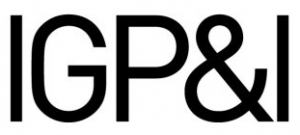
Illegal scrap of vessels can result in criminal liability which may be applicable not only to the ship owning company, but also to shipyards, brokers, insurance companies, banks and other entities enabling the transaction. In 2020, Norway saw its first case ̶ TIDE CARRIER ̶ exemplifying the prohibition to scrap vessels in breach of the outlined regulations.
Written by

Sofia Berisha
-

Kim Jefferies
-
Published 06 July 2022
At the end of their useful life, ships are recycled for the valuable steel and other materials that can be re-used. End of life ships also contain hazardous substances, like asbestos, heavy metals, oil sludge and other pollutants that if mis-managed, are hazardous to people and the environment. Of particular concern is the practice of beaching vessels, that is, driving them during high tides onto the tidal flats where they are then dismantled, allowing pollutants to leach into the unprotected intertidal environment. According to the International Labour Organization, many beaching facilities lack protections for workers, making shipbreaking in such facilities one of the most dangerous jobs on earth.
The current regulatory patchwork
Following increased international criticism of the shipping industry’s scrapping practices, the IMO adopted the Hong Kong Convention for the Safe and Environmentally Sound Recycling of Ships.
The Convention provides a “from cradle-to-grave” approach, meaning that its rules apply to ships from the moment they are being designed, built, and maintained and until they are recycled. The main obligations set out in the convention stipulate requirements for ships, ship scrapping facilities, as well as reporting requirements. Norway was the initiator of the convention and the first nation to ratify it.
Adopted in May 2009, the Convention has not yet entered into force. Entry into force will only occur 24 months after ratification by 15 States, representing 40 per cent of world merchant shipping by gross tonnage. There are now more than 15 signatory states but not amounting to 40 per cent of the world tonnage. Many EU nations are signatories. Turkey and India, two of the five top recycling nations are also signatories. Bangladesh and Pakistan, also among the top recycling locations are not currently signatories to the convention.
In Europe, ship scrapping is currently regulated by two parallel regimes, one for EU-flagged ships, and one for non-EU-flagged ships.
Export of non-EU-flagged ships from Europe to recycling facilities
Export of non-EU-flagged ships is regulated by the EU Waste Shipment Regulation no 1013/2006 (the EWSR) and the Basel Convention which together establish a so-called “Waste Movement Regime” since they render obsolete vessels as “waste”.
The Basel Convention on the Control of Transboundary Movements of Hazardous Waste and Their Disposal was adopted 1989 and came into force in 1992. Most countries, with the notable exception of the United States, are parties to the Convention. The Convention is aimed at controlling the movement of hazardous waste from developed countries to developing countries to prevent rich countries from dumping hazardous waste on poorer countries that are not equipped to safely deal with such waste. Because ships contain hazardous waste, an end-of-life ship headed from a signatory state to a South Asia beaching facility will often fall within the scope of the Basel Convention. The unamended Basel Convention does not ban export, but it does require notice and permit approval from the exporting country and the importing country as well as other regulatory requirements as enacted in national legislation.
The Basel Ban Amendment is an agreement taken by Basel Convention Parties to prohibit the member states of the Organization for Economic Cooperation and Development (OECD), the European Union (EU), and Liechtenstein from exporting hazardous wastes as defined by the convention to non-OECD countries – primarily developing countries or countries with economies in transition.
The EU Waste Shipment Regulation (No. 1013/2006) extends the obligations outlined in the Basel Convention. Firstly, the EWSR covers all types of wastes and, secondly, it implements the Basel Ban Amendment which prohibits shipment of waste destined for disposal to any developing non-OECD states.
Export of EU-flagged ships for recycling
Export of ships operating under EU flags is governed by the EU Ship Recycling Regulation no 1257/2013 (ESRR). The ESRR regulates ship recycling based on terms modeled on the Hong Kong Convention and in some respects goes further than the Convention by requiring recycling to be performed in authorized shipyards included on the so-called “European list”.
The European List of approved facilities includes yards in several European nations as well as facilities in Norway, Turkey, the United States and the UK. There are no South Asian yards on the approved list even though many yards, particularly in India, have commissioned and received certification from classification societies that they are “Hong Kong compliant”.
Norway’s adoption of the EU framework
Norway is not an EU member state, but it is a member of the European Economic Area ("EEA") Agreement, which includes an obligation on the EEA member states to incorporate the EU Waste Shipment Regulations. In Norway that was done by the enactment of the Norwegian Waste Regulation section 13-1, which entered into force on 1 July 2008. Therefore, as from this date, it was prohibited to export vessels for recycling– irrespective of flag – from Norway to a non-OECD state for scrapping.
Circumvention of the legislation
While the Waste Movement Regime looks at the exporting state and considers a ship as subject to the Convention only when it is intended to be scrapped, the ESRR looks at the nationality of the ship itself which is determined by where it is registered or “flagged”. Given the financial incentive to scrap in South Asian yards by beaching the vessel rather than using yards utilizing dry docks and more expensive workers, European shipowners may seek to take advantage of the ease of re-flagging the vessel and disguising a final voyage as a sale of an operating vessel. So called “cash buyers” are the middlemen between the shipowner and the breaking yard.
This tension between maximizing return for scrap and the incomplete global regulation of shipbreaking led to the investigation and prosecution of the TIDE CARRIER case in Norway.
The EIDE CARRIER becomes the TIDE CARRIER and then the HARRIER
Illegal scrap of vessels can result in criminal liability which may be applicable not only to the ship owning company, but also to shipyards, brokers, insurance companies, banks and other entities enabling the transaction. In 2020, Norway saw its first case ̶ TIDE CARRIER ̶ exemplifying the prohibition to scrap vessels in breach of the outlined regulations.
The EIDE CARRIER was built in 1989 as a “Lighter Aboard Ship” or LASH vessel with the primary purpose to carry barges. The vessel had been out of service and laid up in western Norway when in 2015, the NGO Shipbreaking Platform received an anonymous tip that the vessel had been sold by its Norwegian owner for scrap. The Platform is a coalition of environmental, human and labour rights organizations seeking an end to the “beaching” of vessels and unsafe conditions for the workers often found in such facilities.
The Platform recounts that after receiving the tip, they contacted the owner to say that exporting the vessel to a South Asian beaching yard would be in breach of the Waste Movement Regime. The owner at that time denied that the vessel had been sold for scrap.
In February 2017, the vessel attempted to leave Norway under the name “TIDE CARRIER.” The registered owner was then Julia Shipping, incorporated in St. Kitts and Nevis and the vessel was flagged in Comoros. Mere hours after the vessel’s departure, it suffered an engine stoppage. The Norwegian authorities had to mount a salvage and rescue operation to prevent the vessel from grounding.
The NGO Shipbreaking Platform alerted the Norwegian authorities that there were red flags indicating that the vessel had been sold to a beaching yard in South Asia and that Julia Shipping was likely a front concealing a cash buyer.
When the Norwegian Environment Agency boarded the vessel, they found documentation that the vessel was not actually bound for a repair yard in the Middle East as had been represented but was bound for a breaking facility in Gadani, Pakistan. The sale contract to Julia Shipping from 2015 showed that the contact person for Julia Shipping was the Chief Financial Officer of Wirana, a well-known cash buyer. The vessel was arrested and was prohibited from leaving Norway without an export permit from the Norwegian authorities.
It turned out that Julia Shipping had been incorporated by Wirana for the purpose of owning the vessel. Julia Shipping renamed the vessel HARRIER and reflagged it in Palau. Ultimately, Julia Shipping was granted permission from the Norwegian authorities to sail the vessel to Aliaga, Turkey for recycling, Turkey being an OECD country.
The conviction and appeal
The police investigation led by Økokrim, the Norwegian Authority for Investigation and Prosecution of Economic and Environmental Crime, resulted in the conviction of the Norwegian shipowner. In November 2020, the Norwegian shipowner was convicted and sentenced by the Sunnhordaland District Court to six months imprisonment for having assisted Wirana in its attempt to illegally export the vessel in contravention of Norway’s Pollution Control Act. In addition, the Court ordered the confiscation of “criminal dividends” of two million Norwegian Kroner from the Norwegian ship owning company. This sum represents the “profit” that would have been realized by scrapping in Pakistan compared to the compliant yard in Turkey.
Wirana was fined seven million kroner for the attempt to illegally export the ship, as well as two counts of false statement and one count risk of acute pollution in the attempted sailing of the TIDE CARRIER.
The shipowner appealed and in March 2022, the Gulating Court of Appeal of upheld the six-month prison sentence.
The Court stated that it makes little difference to the criminality of an act whether a shipowner sells the ship directly to a scrapyard or indirectly via an intermediary (a cash buyer). The decision was not unanimous. Two of the seven judges felt that the burden to prove guilt beyond a reasonable doubt had not been met. Leave to appeal to the Norwegian Supreme Court was denied and the judgment is now final.
Lessons learned
This judgement is important for all actors involved in the shipping industry as it can be presumed to form a basis for the prosecutor’s office to follow up cases concerning end of life ships bound from Norway to scrapping facilities in non-OECD countries. The judgement also creates precedent for the courts in future cases. The case demonstrates that environmental and labour rights groups are passionate about ending environmentally damaging and unsafe working conditions in some shipbreaking nations and these groups provide information to authorities when they see red flags indicating possible evasion of regulations. The most important lesson is that sale of the vessel to a third party does not necessarily relieve the shipowner of responsibilities for compliant shipbreaking. It is also worth noting that the ruling may also have relevance outside of Norway and can potentially influence legislation and court procedures in other European and developed countries.
Given the current patchwork of international, regional and national legislation, all actors who are involved in the process of dismantling the ship are recommended to perform extra due diligence in the process of preparing a vessel for scrap including obtaining expert advice with respect to the complex regulatory environment.
Shipping is a global business and a uniform practice in terms of ship recycling is essential to level the playing field and reduce the financial incentives to undertake practices that endanger people and the environment. Gard supports the Basel Convention and the ratification of the Hong Kong Convention to provide a global regime for ship recycling. Gard is a signatory to the Ship Recycling Transparency Initiative. Gard’s full statement on sustainable ship recycling can be found here.
Author Sofia Berisha thanks Professor Trond Solvang for the review of her thesis which formed the basis for the regulatory discussion.
Co-author Kim Jefferies thanks Herman Steen, partner with Wikborg Rein for his review and comments and also thanks Rebecca Pskowski for sharing her article “No Country for Old Ships?: Emerging Liabilities for Ship Recycling Stakeholders” published by the Tulane Maritime Law Journal.





